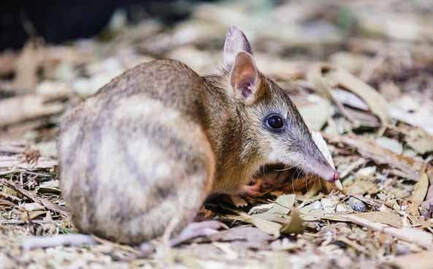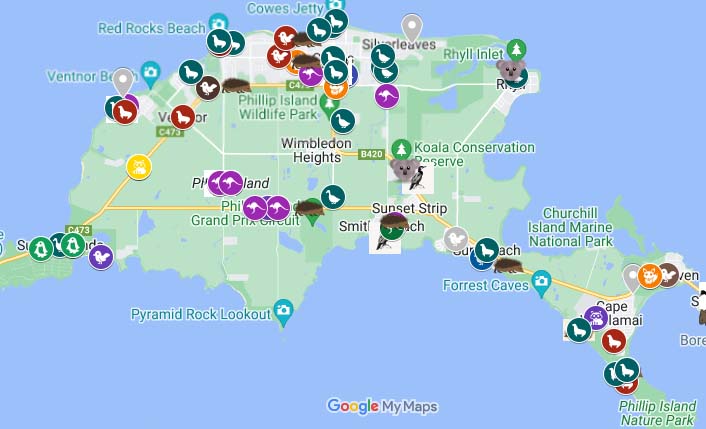 Endangered eastern barred bandicoots are being skittled at increasing rates
Endangered eastern barred bandicoots are being skittled at increasing rateson Phillip Island. Photo: Zoos Victoria
By Lisa Gilbert
In just seven days over the Easter holiday period at least 105 wild animals from 19 different species were killed or injured on roads across Phillip Island.
This holiday period, Wildlife Victoria and Phillip Island Nature Parks are working alongside Bass Coast Shire Council and the Department of Transport and Planning to reduce the wildlife road toll on Phillip Island.
The organisations came together after community members and wildlife rescuers on the Island flagged a substantial increase in the number of native animals injured and killed.
In just seven days over the Easter holiday period at least 105 wild animals from 19 different species were killed or injured on roads across Phillip Island.
This holiday period, Wildlife Victoria and Phillip Island Nature Parks are working alongside Bass Coast Shire Council and the Department of Transport and Planning to reduce the wildlife road toll on Phillip Island.
The organisations came together after community members and wildlife rescuers on the Island flagged a substantial increase in the number of native animals injured and killed.
The first step to reduce the toll is increased roadside wildlife warning signs to warn local and visiting motorists about the endangered Eastern Barred Bandicoot hotspots, based on information provided by the community through the Citizen Science app.
Since the release of Eastern Barred Bandicoots on Summerland Peninsula in 2017, the species has gradually spread across the Island, with populations now becoming more visible on the Summerland Peninsula, Newhaven, Ventnor and Cape Woolamai.
Since the release of Eastern Barred Bandicoots on Summerland Peninsula in 2017, the species has gradually spread across the Island, with populations now becoming more visible on the Summerland Peninsula, Newhaven, Ventnor and Cape Woolamai.
|
As the bandicoot population grows, it has led to an increase in the endangered marsupials being hit and killed by cars. The signs will educate the community on where to exercise caution.
“We understand accidents happen,” Wildlife Victoria CEO Lisa Palma said. “All we ask is that when they do, drivers call Wildlife Victoria to report them. You might just save a life.” The Emergency Response Service is staffed by a team of highly experienced operators 24 hours a day, seven days a week, who can provide advice and, when required, dispatch a volunteer rescuer. |
Call Wildlife Victoria’s 24/7 Emergency Response Service on 03 8400 7300 to report any incidents of sick, If you see sick, injured, orphaned or deceased wildlife, |
Phillip Island Nature Parks Conservation Manager Jessica McKelson said Phillip Island was home to some of Victoria’s most unique and wonderful wildlife.
“It is everybody’s responsibility to help protect and care for our local wildlife, particularly in peak holiday periods when more visitors travel to Phillip Island to enjoy our beautiful landscapes and natural wonders, and there is more traffic on our roads.”
“It is everybody’s responsibility to help protect and care for our local wildlife, particularly in peak holiday periods when more visitors travel to Phillip Island to enjoy our beautiful landscapes and natural wonders, and there is more traffic on our roads.”
